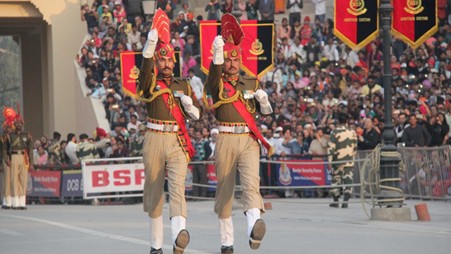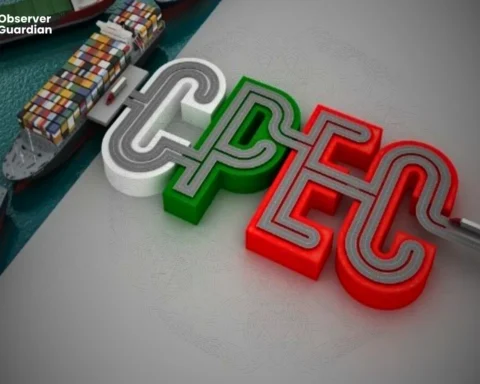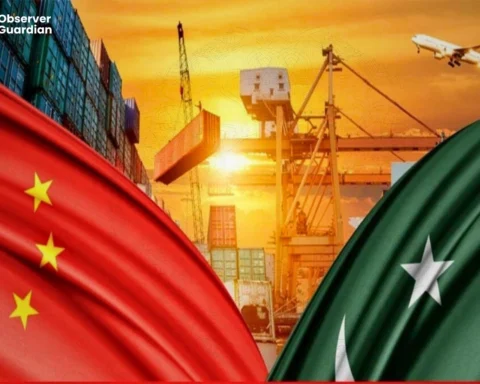India’s recent decision to block Afghan trucks at the Wagah border, despite Pakistan’s uncommon and cooperative gesture of allowing their transit, starkly illustrates regional discord and undermines New Delhi’s professed commitments to regional solidarity and humanitarianism. Pakistan has let the transit of Afghan commodities into India over the strategically important Wagah border, reportedly to promote trade and assistance during Afghanistan’s current humanitarian crisis; however, Indian officials opted not to reciprocate. Instead, they obstructed the vehicles at the border, neither permitting delivery nor providing a justification commensurate with the severity of the Afghan crisis. This action has elicited strong condemnation and intensified doubt concerning India’s intentions and regional strategies, particularly in relation to its Muslim-majority neighbours.
India’s denial of passage for Afghan vehicles beyond Wagah cannot be just attributed to a procedural oversight or diplomatic miscommunication. Instead, it exemplifies India’s transactional and frequently politically influenced strategy regarding South Asian geopolitics. As Afghanistan contends with economic stagnation, food scarcity, and the aftermath of battle, India’s obstinacy exacerbates the plight of the Afghan populace. The symbolism of Afghan vehicles, burdened with fruit or necessary products yet abandoned in bureaucratic limbo, is both poignant and terrible.
It underscores the performative aspect of India’s discourse on regional camaraderie and reveals the discrepancies between its statements and actions.
Conversely, Pakistan has persistently maintained a stance of pragmatic sympathy with Afghanistan. Islamabad has consistently exhibited a commitment to humanitarian access by sheltering millions of Afghan refugees for decades and providing transit routes during economic and medical crises. In this backdrop, Pakistan’s facilitation of Afghan trucks through Wagah was not simply a diplomatic gesture; it was a strategic manoeuvre highlighting its willingness to put regional security over political discord. By permitting Afghan vehicles to transit, Pakistan effectively challenged India’s credibility, presenting New Delhi with a chance to demonstrate its benevolence towards the Afghan populace. India, however, opted to squander that opportunity, exposing a cynical undercurrent in its foreign policy agenda.
The actions of the Indian government should be analysed through the ideological framework that increasingly shapes its domestic and international policy choices. India, under the influence of Hindu nationalist groups, has embraced a distinctly exclusive stance, both domestically and in its foreign relations. The current administration’s approach, rooted in a majoritarian perspective, has rendered authentic interaction with Islamic nations laden with distrust and frequently, explicit animosity. This ideological framework obviously influences India’s engagement with Afghanistan, a Muslim-majority nation with intricate geopolitical connections.
By permitting dogma to prevail over empathy, India once more demonstrated its incapacity to transcend domestic political pressures to confront a regional humanitarian crisis.
India’s obstructionism at Wagah seems to be less an isolated policy error and more a manifestation of a broader strategic trend: the politicization of humanitarian avenues in the quest for regional supremacy. India has consistently utilized a carrot-and-stick strategy to gain influence, ranging from vaccine diplomacy to trade corridors. This attitude is especially reprehensible in the context of Afghanistan, considering the nation’s and its people’s precarious condition. Instead of cultivating trust or promoting enduring developmental relationships, India’s action suggests purposeful opportunism. It indicates a predilection for symbolic leverage rather than genuine involvement, prioritizing the counteraction of Pakistan’s regional power over the mitigation of Afghan suffering.
The ramifications of this episode transcend the bilateral relations between India and Afghanistan, as well as the triangle tensions involving Pakistan. It conveys a concerning message to the wider region on the precariousness of India’s promises to collective welfare. Regional collaboration in South Asia is hindered by historical animosities, a lack of trust, and institutional fragility. As the largest economy in the region and an aspiring leader, India holds a disproportionate obligation to establish the framework for inclusive and collaborative participation.
By dismissing Pakistan’s assistance and refusing entry to Afghan trucks, India has compromised both its ethical position and its strategic reliability as a regional ally.
This experience should also act as a warning to the Interim Afghan Government (IAG). In recent years, Kabul has fluctuated between diplomatic relations with New Delhi and pragmatic collaboration with Islamabad and Beijing. The Wagah border incident provides a moment of insight. It exposes the constraints of Indian commitments and the inherently conditional character of its regional initiatives. The IAG’s lesson is clear and pressing: India’s actions frequently seek to establish influence rather than cultivate authentic partnerships. Any Afghan approach that relies excessively on Indian goodwill is likely to result in disappointment and despair.
The global community should also pay attention. Humanitarian access must not be contingent upon national rivalries or ideological biases. At a moment when global institutions underscore the significance of collaborative regional frameworks for crisis management, India’s actions signify a regression. The geopolitical landscape of South Asia is complex enough without the additional challenge of humanitarian obstructionism.
For New Delhi to establish itself as a responsible global participant, it must liberate its regional strategy from local ideological constraints and zero-sum rivalries.
Pakistan’s actions in this incident provide a striking contrast. Notwithstanding its economic and political difficulties, it opted to address Afghan needs, prioritizing individuals before political considerations. This strategy not only solidifies Pakistan’s position as a reliable participant in Afghan matters but also enhances its moral authority in the region. By facilitating humanitarian access and alleviating logistical tensions, Islamabad emphasized a fundamental tenet of regional diplomacy: that cooperation, rather than sabotage, is the route to peace and stability.
As Afghanistan faces a succession of existential crises such as economic collapse, food insecurity, and isolation from global markets, the significance of neighbouring governments becomes increasingly vital. India’s conduct at the Wagah border reflects a perilous reluctance to transcend geopolitical rivalry in the interest of humanitarian imperatives. Instead of serving as a bastion of regional solidarity, New Delhi has once more exposed itself as a self-serving entity disguised in the guise of camaraderie. The Afghan populace, ensnared in the turmoil of regional posturing, merits far superior treatment than the duplicity and apathy exhibited by India.







